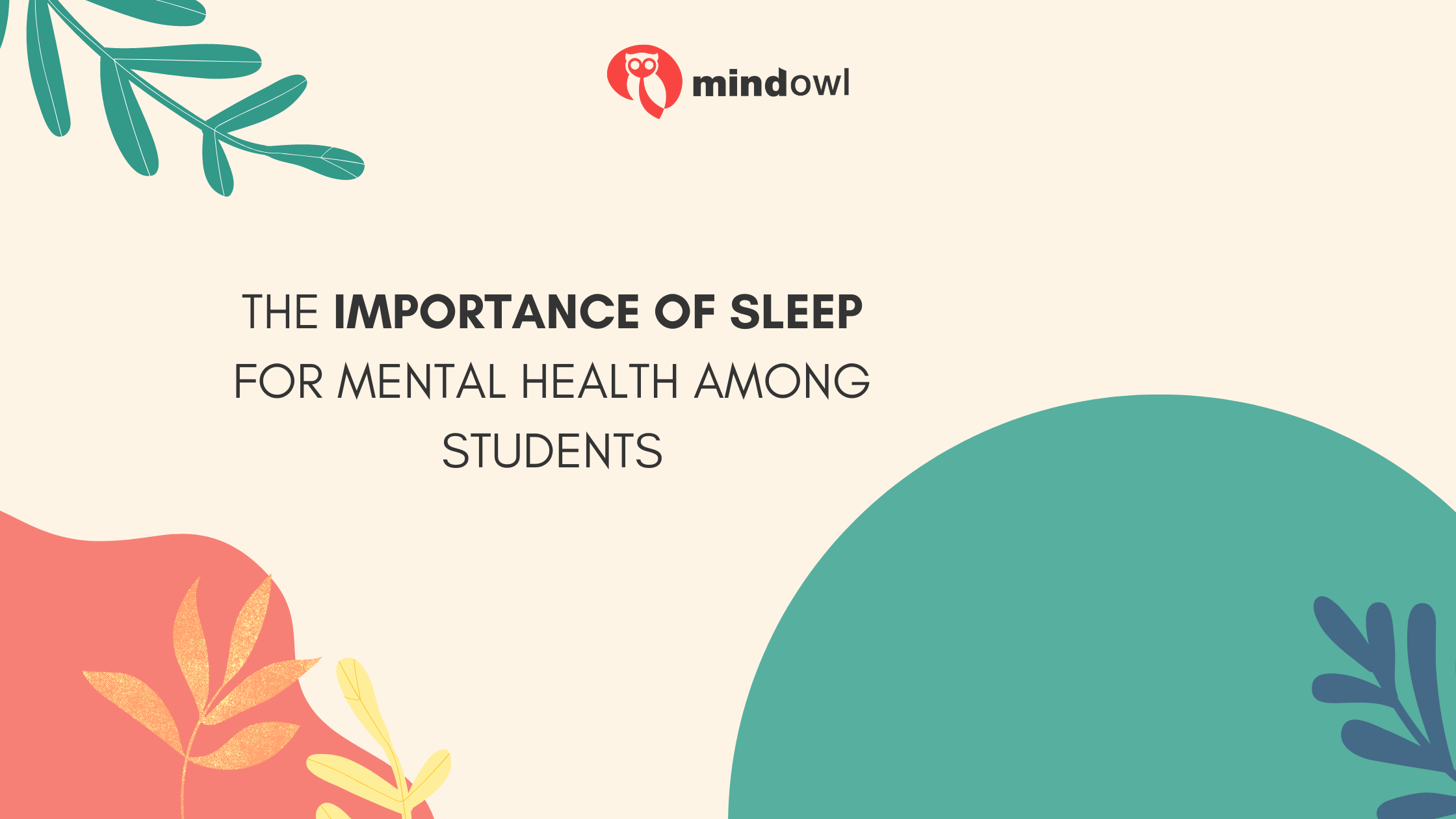Are you having trouble staying awake in class? Are all-nighters not helping you with your studies? If the answer to either of these questions is ‘yes’, then it’s time for a wakeup call: sleep is essential for student mental health! In this blog post, we’ll discuss why students need adequate rest and how it can help promote better mental wellbeing. We will also explore strategies on getting enough shut-eye so that you are mentally refreshed and ready to tackle anything that comes your way. So if lack of sleep has been putting a damper on your academic performance, this post has the answers you’ve been looking for – no more relying on coffee just to make it through the day!
1. Why sleep is important for mental health
Getting a good night’s rest not only helps you feel refreshed in the morning, but it also plays a critical role in maintaining good mental health. For students, in particular, restful sleep is essential to help combat the many stressors that come with a busy school schedule.
According to recent studies, lack of sleep can lead to decreased attention span, poor memory function, and even increased risk of depression and anxiety. On the other hand, getting enough quality sleep can foster deeper learning, improve focus, and enhance overall mood. As students, it’s important to prioritize a consistent sleep schedule to ensure a healthy mind and body. Remember, sometimes the best thing you can do for your mental health is to simply rest.
Mental health over homework
Lack of sleep can lead to a decline in academic performance, as well as various health issues. If you find yourself struggling to balance school work and getting enough rest, don’t hesitate to ask for help. Edubirdie.Com has a team of professionals ready to assist you, even with essay writing assignments. Don’t compromise your health and academic success – make sure you prioritize getting enough sleep. Resting as much as your body needs it is crucial, regardless of whether you’re finishing schoolwork on time – and guess what? Your professors know it too!
2. Common challenges faced by students in getting adequate sleep
Getting enough sleep is crucial for students to perform well in school and maintain their overall health. However, it can be a real challenge for many students to get the recommended 7-9 hours of sleep per night.
1) Constant distraction of electronic devices. Whether it’s scrolling through social media or binge-watching their favorite show, students often have a hard time putting their devices down and turning off their screens before bedtime.
2) The demands of schoolwork and extracurricular activities. With so much on their plate, students may struggle to balance their responsibilities with adequate sleep.
3) Lastly, there’s the issue of caffeine intake. Many students turn to coffee or energy drinks, which can disrupt sleep schedules and make it harder to fall asleep at night.
By taking steps to address these challenges, students can prioritize their sleep and wake up feeling rested and ready to take on the day.
3. Tips to help students improve their sleep schedule
We’ve all been guilty of scrolling through social media or binge-watching our favorite show late into the night, but unfortunately, these habits can wreak havoc on our sleep schedule. Luckily, there are plenty of ways to improve our sleep habits and wake up feeling refreshed and ready to take on the day. Simple changes, like setting a consistent bedtime and limiting screen time before bed, can make all the difference.
Additionally, creating a relaxing bedtime routine, avoiding caffeine and alcohol before bedtime, and investing in a comfortable mattress and pillows can all contribute to a more restful night’s sleep. With a few tweaks to our daily routines, we can say goodbye to tossing and turning and hello to sweet dreams.
4. Relaxation and mindfulness to help with stress management
In this fast-paced world, finding ways to relax and unwind can be challenging. That’s why practicing mindfulness is more crucial than ever. Mindfulness involves focusing on your present thoughts and sensations, as well as being aware of your surroundings. Deep breathing exercises, yoga, and meditation are some of the most common techniques used to practice mindfulness.
Additionally, you can incorporate progressive muscle relaxation to relieve stress and tension throughout your body. With a little practice, these techniques can help you reduce anxiety and improve the quality of your sleep. Try incorporating mindfulness into your daily routine, and discover a newfound sense of calm and inner peace.
5. Potential consequences of skipping out on sleep
You know that feeling when you pull an all-nighter and suddenly everything feels like it’s moving in slow motion? That’s your body’s way of screaming at you for skimping on sleep. The potential consequences of not getting enough shut-eye go beyond just feeling groggy. Skipping out on sleep can lead to trouble focusing, mental fatigue, and even worse outcomes if it becomes a chronic habit. It’s like your brain is a car and sleep is the gasoline. Without it, you’ll still move, but eventually, you’ll sputter and stall. So make sure you prioritize sleep over anything else!
Author Bio:
Scott Roberts is a health and wellness writer. He is passionate about helping students improve their sleep, mental health, and overall wellbeing. When he’s not writing, he loves to play basketball and explore nature. He is also a certified yoga teacher and enjoys helping people learn about the power of mindfulness.
MindOwl Founder – My own struggles in life have led me to this path of understanding the human condition. I graduated with a bachelor’s degree in philosophy before completing a master’s degree in psychology at Regent’s University London. I then completed a postgraduate diploma in philosophical counselling before being trained in ACT (Acceptance and commitment therapy).
I’ve spent the last eight years studying the encounter of meditative practices with modern psychology.


